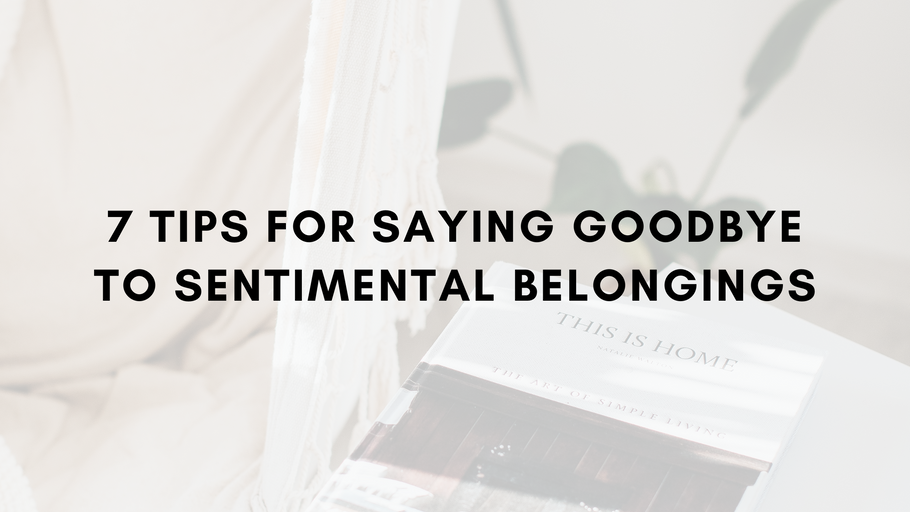
by admin | Nov 3, 2021 | Uncategorized
Should You Sell to an Instant Offer Company?
There’s a new term in real estate: iBuyer.
iBuyers, short for instant buyers, give sellers an almost instantaneous offer on their homes. Also called instant offer companies, iBuyers promise sellers an offer within a couple of days and closing dates within one to two weeks. Some popular iBuyers include Opendoor, Offerpad, Redfin, and Zillow Offers.
Unlike house flippers, iBuyers aren’t looking for distressed homes. iBuyers purchase moderately-priced homes, fix them up as needed, and relist them.
The obvious downside to selling to an iBuyer is that you will not get top dollar for your home. They are looking for homes where they can make a specific profit margin. Typically, the company will analyze your home online, using algorithms to come up with a value. For example, Zillow Offers will most likely offer you their Zestimate price. Sellers should expect an offer of about 10% under fair market value.
iBuyers accept a tiny percentage of the homes submitted. If the company decides to make you an offer, they may send a home inspector out to determine what costs they will have in preparing to resell the house. If you work with an iBuyer, make sure to read all the terms, as you may be required to cover some repairs.
While using an iBuyer saves you from paying real estate agent fees, watch out. You may not have to pay the 5-7% real estate commission, but iBuyers charge fees that may run anywhere from 6 to 9%. The total costs of working with an iBuyer can sometimes run as much as 12-15% of your selling price.
Working with an iBuyer benefits sellers who don’t have the time or desire to market their home traditionally. If you are in a situation where you need to sell your home quickly and are willing to take less than your home is worth, then an iBuyer may work out well for you.
Before you offer your home to an iBuyer, please allow me to discuss your options with you. Send me a message.

by admin | Oct 13, 2021 | Uncategorized
Low-interest rates have many homeowners wondering if it’s a good time to refinance. Refinancing can save you a lot of money in the long term when done correctly. It’s important to consider the drawbacks as well. Here are some reasons why you might want to refinance, and a few things to be cautious of.
Reasons you may want to refinance:
- To lower your monthly payment.
If today’s interest rates are lower than when you purchased your home, refinancing to a lower rate will reduce your monthly payment down, freeing up cash to help with other bills, your children’s education, or to save towards retirement.
2.To pay off your mortgage earlier.
A great way to use the money you save with a lower mortgage payment is to apply it right to your principle, which will help you pay your loan off earlier.
3.To take advantage of a better credit score.
If your credit score has increased significantly since you bought your home, you may get a better loan if you refinance.
4.To save on total interest.
For some, the desire to pay less interest overall makes refinancing an attractive option. Reducing the interest rate and/or the loan term will save you money long term.
5.To change loan types.
If you have an adjustable-rate mortgage that has been increasing or is nearing the end of the fixed period, you may want to switch to a fixed-rate mortgage.
If you have extra cash on hand to make larger monthly payments, it may make sense to change to a 15-year mortgage so you can pay it off earlier.
6.To consolidate debt or take cash out.
If you have built up equity in your home, you may be able to borrow against your home to obtain cash to pay off higher-interest debt, to make improvements on your home, or for things like your children’s education or medical expenses.
Be careful when borrowing against your home. If the cash you take out goes to increasing your debt rather than resolving it, then you could end up putting your home in jeopardy.
Don’t forget about the closing costs involved in refinancing. You will have fees associated with your new loan just like you did when you purchased your home, so remember to figure the closing costs when you do the math.
Also, be cautious about extending your loan term. If you refinance with a 30-year mortgage when you are 10-15 years or more into your current mortgage, you’ll end up paying way more in interest overall, and have extended your payments for many more years.
Of course, a mortgage lender is the best resource for answering your financing questions. If you need someone to talk to further, I’m happy to give you a referral.

by admin | Sep 22, 2021 | Uncategorized
Both buying and selling a home are equally stressful, but what about when you are trying to coordinate both at the same time? There are a lot of moving parts, and the agents involved work together to insure the smoothest possible transactions for our clients. If you are selling your home and want to close on a new home purchase at the same time, here are some things to think about to make your move as smooth as possible.
Truly simultaneous closings are rare these days, especially when financing is involved. Regulations put in place to protect consumers have made simultaneous, or double, closings very difficult to pull off. Concurrent closings occur when a party is selling and buying properties at about the same time, usually within a couple of days of each other. If you wish to close on the sale of your home and the purchase of a new home back-to-back, the best scenario is to work with the same title company and escrow company for both transactions. Usually the sale of your home is closed first, your mortgage is paid off, then the purchase of your new home is closed.
Selling your home ahead of buying is the most risk-free alternative, as neither transaction is contingent on the other. However, this requires your family to make an extra move and have a place to live while you wait to close on a new home, so in terms of convenience and expense, it’s not always the best scenario. If you have the ability to secure a short-term rental, or to put your belongings in storage and stay with family, then you can enjoy the luxury of taking your time to look for and close on your new home. One option that sometimes works out is to rent your home back from your buyers while you wait to close on your purchase. This works well when the buyers are not in a hurry to move in themselves and you can agree on a timeframe for you to remain in the home.
Buying ahead of selling is a dream in terms of convenience. You can take your time moving, and maybe do some renovations or decorating before you move in. But will you qualify for a new mortgage without a contingency on selling your existing home? If you can swing the mortgage, or are paying cash, it may be a great option for you. Remember to realistically consider how long you can afford to maintain two properties– with maintenance costs– in case it should take you longer than expected to find a buyer for your present home. In this scenario, you may want to rent your new purchase back to the sellers, or list it as a short-term rental, while you wait to close on the sale of your existing home.
Consider your buyers and sellers carefully when trying to coordinate a sale and purchase within a short amount of time. The last thing you need is a seller or buyer who is displaying signs of being uncommitted to the deal. While no deal is guaranteed until all the closing documents have been signed, when you need a purchase or sale to coincide with your schedule, you should carefully evaluate who you sign a contract with. A contract with contingencies on other deals going through, a lender expressing doubt about final financing approval, a low good faith deposit, buyers asking for unreasonable repairs or allowances, or sellers whose moving plans are questionable are red flags that your deal could fall apart.

by admin | Sep 1, 2021 | Uncategorized
When I work with clients who are downsizing to a smaller home, one of the hardest chores they face is letting go of sentimental belongings they no longer have room for. Souvenirs collected during travels, family heirlooms, and your children’s keepsakes can be quite stressful to part with. It doesn’t matter whether the items have monetary value or not; in fact, often the most difficult items to let go of are worthless in terms of money, but priceless in sentimental value.
Here are some tips to help you part with belongings you are attached to but no longer want to keep.
1.Remember that our memories reside within us, not within our possessions.
Psychologists say that letting go of sentimental items can be extremely therapeutic. When we keep things, the items occupy both physical and mental space in our lives. It’s healthier to focus on your memories and not the items that represent your memories.
2.Focus on the present.
Letting go also helps to bring your focus to the present. Sometimes things are continual reminders of the past and hold us back from living in the present. Dwelling in the past can make one more prone to depression and can affect our ability to deal with stressful situations in our lives. Realize that while we can always cherish our memories, we don’t need the past to be happy in the present.
3.Let go of guilt.
People often hold onto an item they don’t want or need because someone special gave it to them or it represents a special person. Learn to let go of the guilt associated with getting rid of gifts you can’t use. Appreciate the thoughtfulness of the giver or the special memory it represents but pass the item on to someone else who can use it or donate it to charity.
4.Don’t save it for your grown children.
Times have changed and today more young adults are able to buy their own furnishings. And they aren’t as sentimental about family heirlooms as prior generations were. Talk to your kids now and find out if you are holding onto your china, crystal, and silver tea service for nothing.
5.Compromise with your spouse.
It’s not uncommon for one spouse to resent the others’ favorite belongings while holding onto their own special stuff. It’s important to recognize that, while you may not understand your husband’s need to keep a ball cap for every MLB team he’s seen play, he may feel the same way about his hats that you do about keeping every book you have read. Decide together on a reasonable number to keep.
6.Start with the easy stuff.
If you have a lot of belongings to sort through, start with the easier decisions and work from there. Often people find that once they get some momentum going it feels good to let go.
7.Write a family memoir.
Hold onto your memories with words instead of things by writing your memoir or the story of your family. Writing your story can be very therapeutic and can help you release your hold on tangible items. If you need help, try a service like Storyworth.com.

by admin | Jun 29, 2021 | Uncategorized
Short-term rentals can be a highly lucrative investment and a fun way to make money. Some of the advantages to managing a short-term rental property include:
- Your tenants are generally excited to be at your vacation property and may not require as much attention as a long-term tenant.
- You can collect one-time, up-front payments instead of keeping track of monthly or weekly payments.
- Depending on the location and amenities of your property, you may make several thousand dollars per month per property.
- Platforms such as Airbnb, VRBO, and Booking.com make it easy to set up a website to market your property.
A short-term rental investment can be accomplished by purchasing a property to keep rented out or putting your own home up for rent when you travel. Whichever course you take, here are some things to think about before you hang up that “vacancy” sign.
- Managing short term rentals is not exactly passive income. There is quite a lot of work involved in marketing the property, keeping it maintained, and turning it around between tenants. Consider whether you have the time to keep up with it yourself or if you will need to hire a property manager, and how much that will cut into your profits.
- Think beyond vacation rentals. Short term rentals don’t have to be on the beach or a ski slope. Other reasons why someone may need a rental in your neighborhood include job interviews, waiting to close on a home, renovating a home, visiting family, traveling with pets, college tours, entertainment events occurring in the area, or having medical procedure done at a nearby hospital.
- Do your due diligence when buying an investment property. You’ll want to assess the existing short-term rental market and find out what the going rates are and which areas are renting well. You should find out if there are HOA or condominium regulations that prohibit short-term rentals. Also inquire as to state, county, or city regulations and resort taxes.
- Create a business plan. Many property owners wing it with their short-term rentals, but you will have more peace of mind and less surprises if you treat your rental as a business. Make a list of expenses, including insurance, mortgage payments, taxes, cleaning and handyman services, utilities, internet and TV, lawn or pool care, furnishings, consumables you will provide, and marketing costs.
- Work with an agent who knows the area. Buying the right property at the right price takes some experience. Remember that the purchase of the property is the bigger investment than the rentals to follow. Let’s talk about how I can help you get started making money with short-term rentals!






Recent Comments